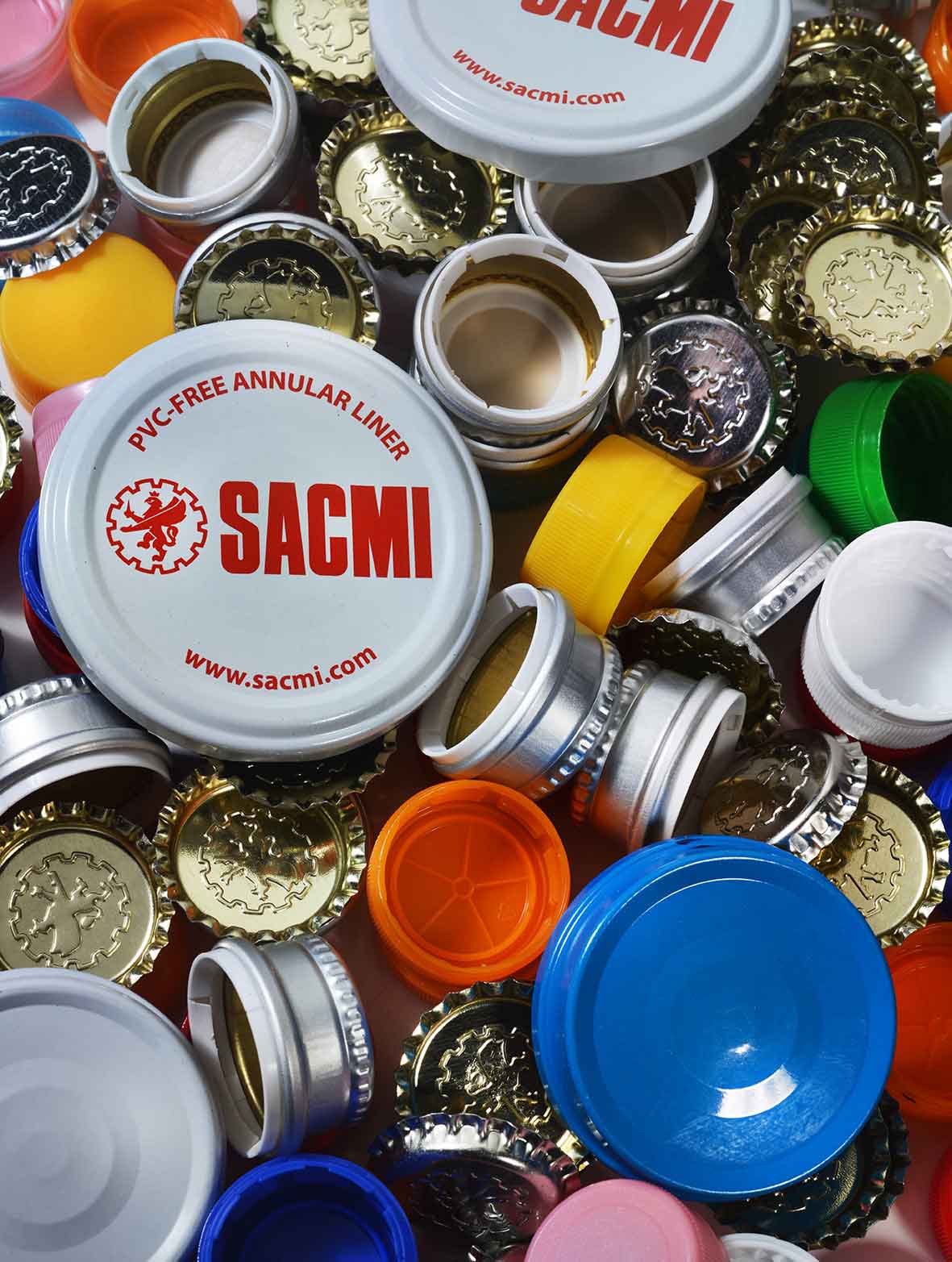
Plastindia 2018, the area's biggest plastic industry-dedicated event, will see the Group play a leading role with solutions for the manufacture of caps, containers and preforms, all characterised by unbeatable standards in terms of productivity, reliability, precision and energy savings.
Sacmi solutions for the plastics-closures industry will soon be on show at Plastindia 2018, the 10 th edition of the country's leading fair with 600 exhibitors from 40 countries and a staggering 200,000 visitors. Already a key player in the area with Sacmi Engineering – a one-stop production, sales and assistance reference point serving the entire Indian market – the Sacmi Group will soon head to India (7-12 February 2018, Gandhinagar Ahmedabad, Gujarat State) to illustrate the tried and tested advantages of compression technology in the manufacture of caps and containers.
A pioneering developer of compression presses for the manufacture of plastic caps, Sacmi has invested heavily in this technology, making it the global industry benchmark. The key winning features of the CCM (continuous compression moulding) press range are productivity, energy savings and reliability. CCM was developed by Sacmi to make full use of the intrinsic advantages of a technology that operates at lower temperatures (i.e. reduced on-material stress and a longer working life for both machine and plant).
As visitors to Plastindia will see for themselves in the eye-catching videowall presentation (on the 78m 2 Group stand, hall 8, n° 8B60), the advantages of the range include the ability to manufacture caps with different designs using the same mould. Compared to alternative solutions such as injection, this technology allows - in addition to the briefest cycle times in the industry - for the manufacture of lighter, better-performing caps; moreover, their weight and other parameters are easily modified via the operator interface.
With the aim of extending the advantages of compression moulding to plastic container manufacturing, in 2004 Sacmi began designing and developing the CBF (compression blow forming) range: a new technological platform that allows containers to be manufactured directly from pellets in all commonly used resins.
Together with the outstanding flexibility that stems from being able to use different resins, winning characteristics such as high thermodynamic stability, no injection gate, high productivity and precision-moulded necks have drawn the attention of many dairy and pharma players. Of keen interest to the Indian market – where several Sacmi machines have been installed by leading local pharmaceutical firms – CBF has set its sights on becoming the new international standard on the blow moulding market by combining the best characteristics of other technologies (EBM, IBM, ISBM). This is similar to what happened over the last 20 years with the compression presses the Group designed, developed and marketed for the plastic caps sector.
One of just a handful of competitors able to lead the way across a range of different industries and technologies, Sacmi also provides the IPS (injection preform moulding) system. This preform manufacturing solution uses an injection technology that fully meets the market's need to combine productivity, efficiency, process hygiene and versatile size changeovers. Furthermore, the IPS range is also characterised by the lowest specific consumption on the market (kWh/kg PET) thanks to innovative solutions such as KERS (kinetic energy recovery system). Important design innovations, such as automated preform unloading in the post- cooling area - which, thanks to the use of a pick-up unit, eliminates the need for belts and conveyors - increase process efficiency while simultaneously reducing consumption and any risk of contamination.
At Plastindia 2018 we'll also be showcasing advanced supervision and control systems. Both the CCM and CBF systems can, in fact, be integrated with the all-round quality control solutions developed by the Sacmi Automation & Inspection Systems Division. With an eye to Industry 4.0, supervisors can be configured to ensure real-time plant performance control, maximising efficiency and ensuring ever-more sophisticated diagnostics that permit predictive maintenance.







